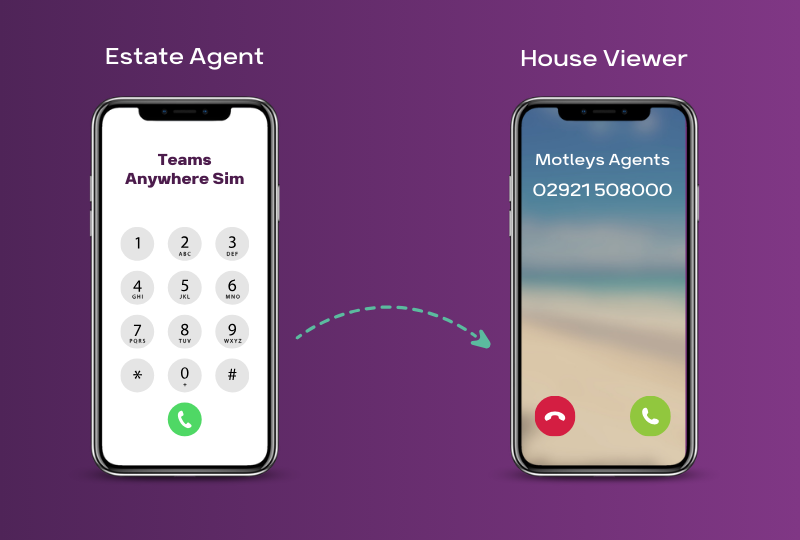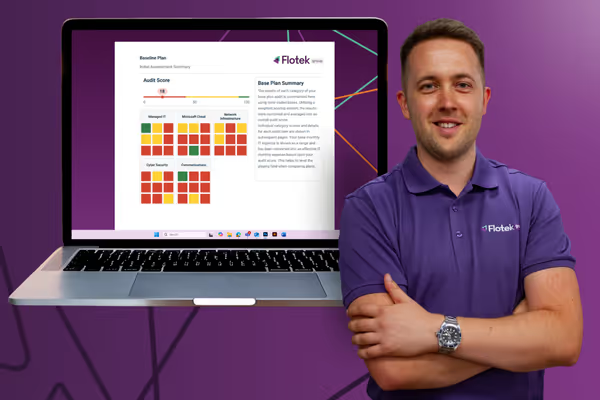
The 15 Benefits of VoIP for Remote Teams
The 15 Benefits of VoIP for Remote Teams
In a world increasingly characterised by flexible working arrangements and globally dispersed teams, effective communication tools have never been more crucial.
Voice over Internet Protocol (VoIP) technology has rapidly become a linchpin for remote teams seeking streamlined, cost-effective communication solutions.
In this article, we will explore the multiple benefits of VoIP for remote teams, discussing how it enhances productivity, can cut costs, and how it offers unparalleled flexibility, among other advantages.
Let’s get into it.
1. Cost-Effective
One of the most evident benefits of VoIP is its cost-efficiency.
Traditional phone lines can be expensive to install and maintain, especially when long-distance or international calls are a frequent requirement.
VoIP alleviates this burden by transmitting voice data over the internet, thereby reducing or entirely eliminating additional fees for overseas communications.
Remote teams can leverage this affordability to improve the bottom line, diverting resources to other essential business needs.
2. Scalability And Flexibility
Another striking advantage is the scalability and flexibility of VoIP systems.
As businesses grow or downsize, the VoIP system can be effortlessly scaled to meet evolving needs.
Additional lines, features, or geographic extensions can be added without the hassles of physical installations or complex configurations.
This adaptability makes VoIP a perfect fit for remote teams that may vary in size and requirements over time.
3. Improved Communication Quality
The initial skepticism around VoIP’s voice quality has long been dispelled.
Modern VoIP systems offer high-definition voice clarity, often surpassing that of conventional telephone lines.
Advanced noise reduction and echo cancellation technologies ensure that remote teams can communicate without any distractions, ensuring effective collaborations.
4. Feature-Rich Environment
VoIP is not just a voice communication tool; it offers a myriad of features that can be invaluable for remote teams.
Video conferencing, instant messaging, file sharing, and virtual meeting rooms are just some of the functionalities that come packaged with most VoIP solutions.
These integrated features facilitate a more connected and interactive remote working experience, enabling teams to multitask and collaborate on multiple fronts.
You may also like: What Is The Difference Between VoIP And Cloud-based Phone Systems?
5. Mobility And Accessibility
The importance of mobility cannot be overstated for remote teams.
VoIP technology is inherently mobile, allowing users to make or receive calls from anywhere with an internet connection.
Whether employees are working from home, a café, or even another country, VoIP ensures that they are always reachable.
This unparalleled accessibility helps maintain a consistent level of productivity and keeps the team connected, irrespective of their physical location.
6. Business Continuity And Disaster Recovery
VoIP systems often include robust disaster recovery and business continuity features.
In the case of network failures or other disruptive events, calls can be automatically rerouted to backup lines or mobile devices, ensuring minimal downtime.
For remote teams, this is particularly beneficial as it guarantees that communication lines always remain open, thereby preserving operational integrity.
7. Easy Integration With Other Business Tools
One of the lesser-known but highly valuable benefits of VoIP is its ability to integrate seamlessly with other business software and Customer Relationship Management (CRM) systems.
This integration provides a unified communication platform where all relevant information is consolidated, making it easier for remote teams to access data, track customer interactions, and manage tasks.
8. Data Analytics And Monitoring
Modern VoIP systems come equipped with comprehensive analytics tools that can monitor various metrics such as call durations, wait times, and employee performance.
These analytics are instrumental for remote teams to assess their productivity levels and make data-driven decisions to optimise workflows.
9. Enhanced Security
Security is a paramount concern for any communication system.
VoIP technologies have made significant strides in ensuring secure, encrypted communications.
Features like two-factor authentication, end-to-end encryption, and secure tunnels offer an added layer of protection against potential cyber threats.
10. Reliability
In a remote working setup, dependability is critical, and VoIP systems deliver on this front.
The technology has matured to the point where it can offer uptimes comparable to traditional phone lines and often surpass them.
This reliability fosters trust within remote teams, allowing team members to focus on the task at hand, knowing they have a communication system that works consistently.
With built-in fail-safes and redundancies, VoIP adds an extra layer of reliability that is particularly beneficial for remote teams spread across different geographical locations.
11. Customisation
The ability to customise your VoIP system according to your specific needs is another significant advantage.
Remote teams often have unique requirements, be it specific ring groups, tailored hold messages, or individual extensions that redirect to mobile phones.
The customisability of VoIP systems allows organisations to adapt the technology to their needs rather than adapting their workflows to the limitations of their communication tools.
12. Easy Installation And Management
Traditional phone systems often require complex installations involving physical cabling, PBX hardware, and manual configurations.
VoIP, in contrast, is generally much simpler and quicker to deploy.
For remote teams, this ease of installation and management is a massive advantage, as it minimises downtime and allows for quicker adaptations to changing needs.
This feature is particularly useful for smaller teams that may not have dedicated IT staff but still require a robust communication system.
13. Call Recording And Transcription
Whether for training, compliance, or quality assurance, the ability to record and transcribe calls is often indispensable.
With VoIP, these features are usually built-in or easily integrated, offering remote teams an easy way to document verbal agreements and monitor customer interactions without requiring third-party solutions.
14. Multi-Device Support
Another often underappreciated benefit is VoIP’s multi-device support, allowing users to switch seamlessly between different devices like desktops, tablets, and smartphones.
For remote teams, this capability is incredibly advantageous, as it enables team members to stay connected and available, whether they are at a makeshift home office or on the move.
15. Environmental Benefits
With a growing emphasis on sustainability, the low energy consumption of VoIP technology compared to traditional telephony systems offers a greener alternative.
This aspect can be particularly appealing for organisations committed to reducing their carbon footprint.
Remote teams, which already contribute to reduced energy consumption by minimising office use, can amplify their positive environmental impact through VoIP.
Further reading: Understanding VoIP: What Is A VoIP Service Provider?
Our Final Word
VoIP presents a compelling case for its implementation in remote teams.
Its cost-effectiveness, scalability, feature-rich environment, and high-quality communication make it an indispensable tool for modern businesses.
As remote working continues to be a prevalent trend, the adoption of VoIP technology is not just a smart move but an essential strategy for ensuring efficient, secure, and robust communications.
With all these benefits, VoIP proves to be more than just a telephone alternative; it is a comprehensive communication solution geared toward the future of work.
To talk about how VoIP can benefit your business, get in touch.






.jpg)



























.avif)




%20(4).avif)

%20(1).avif)
.avif)








.avif)
.avif)
%20(1).avif)
.avif)
.avif)